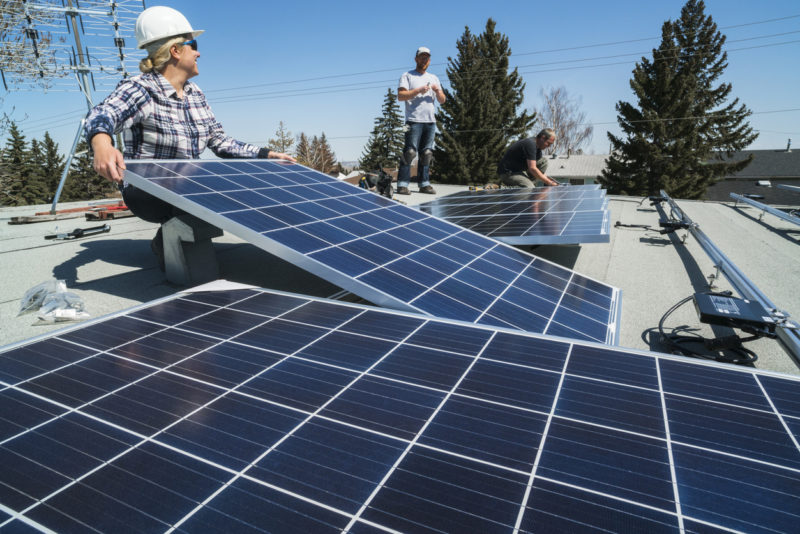Why Solar Power Installment Is the Smart Option for Your Home or Business
The choice to set up solar power in your home or organization is significantly identified as a tactical financial investment, driven by a mix of financial rewards and environmental factors to consider. Welcoming solar energy not just improves your building's value however additionally adds to a more sustainable future.
Financial Savings and Incentives
Investing in solar power installations can dramatically lower energy expenses for property owners and companies alike. By taking advantage of energy from the sun, properties can generate their own electrical power, bring about substantial cost savings on month-to-month utility expenses. In most cases, these financial savings can offset the first installation prices within a few years, supplying an attractive return on investment.
Additionally, many monetary rewards exist to urge solar adoption. Federal tax obligation debts, such as the Financial Investment Tax Obligation Credit Score (ITC), enable property owners and businesses to deduct a considerable percentage of solar setup costs from their federal taxes. solar photovoltaic. Many states and regional governments also use rebates, gives, or performance-based motivations, even more enhancing the cost of planetary systems
Funding options, including solar fundings and leases, are offered to alleviate the in advance economic worry. Via these setups, homeowner can spread out the cost of setup in time, usually paying much less than their previous electrical energy bills.
Additionally, the increasing worth of buildings geared up with planetary systems makes them much more eye-catching in the property market. Generally, the economic advantages of solar power installations are engaging, making them a sensible financial investment for the future.
Environmental Impact and Sustainability

In addition, solar installations can lower dependence on non-renewable resources, such as coal and all-natural gas, which can bring about environment damage and pollution through extraction and burning processes. By transitioning to solar energy, home owners and businesses proactively join minimizing their carbon footprint, cultivating a much healthier ecosystem.
In addition, the manufacturing of solar panels has come to be a lot more reliable and much less hazardous to the environment throughout the years. Many makers are now committed to using sustainable practices, consisting of recycling materials and lessening waste.
Energy Freedom and Stability
Achieving power freedom through solar energy installations encourages people and communities to minimize their reliance on imported nonrenewable fuel sources. helpful resources This change not only enhances local power security yet also stabilizes power costs gradually. With solar power, home owners and services can produce their very own electrical energy, mitigating the effect of fluctuating energy rates driven by worldwide markets.
Solar installations provide a lasting choice that assists buffer versus geopolitical stress and supply chain disturbances connected with fossil gas dependence. By utilizing sunshine, areas can cultivate a self-sufficient power structure, ensuring regular access to power no matter of outside elements. This freedom cultivates financial resilience, as energy production ends up being localized, keeping more funds within the neighborhood.
As more entities take on solar technology, the collective shift towards sustainable energy sources intensifies the general stability of the power landscape. Inevitably, welcoming solar power not just advertises private and neighborhood empowerment but additionally sustains national goals for a sustainable and trustworthy energy future.

Technical Improvements in Solar
Improvements in solar innovation are changing the method energy is taken advantage of and used, further sustaining the energy freedom attained through solar setups. Developments in solar (PV) cells, particularly the advancement of bifacial panels, permit increased power capture by absorbing sunlight from both sides. This modern technology boosts effectiveness and optimizes power output, making solar installments much more effective than ever before.
Additionally, enhancements in power storage services, such as lithium-ion batteries, offer house owners and services the capacity to store excess energy produced during height sunshine hours. This capability ensures a stable power supply throughout periods of reduced sunshine, improving energy reliability and lowering reliance on the grid.
Smart inverters have likewise become a crucial part of modern-day solar systems, giving real-time surveillance view it and optimization of energy usage (solar photovoltaic). These systems make it possible for customers to manage their power consumption smartly, causing lowered expenses and boosted effectiveness